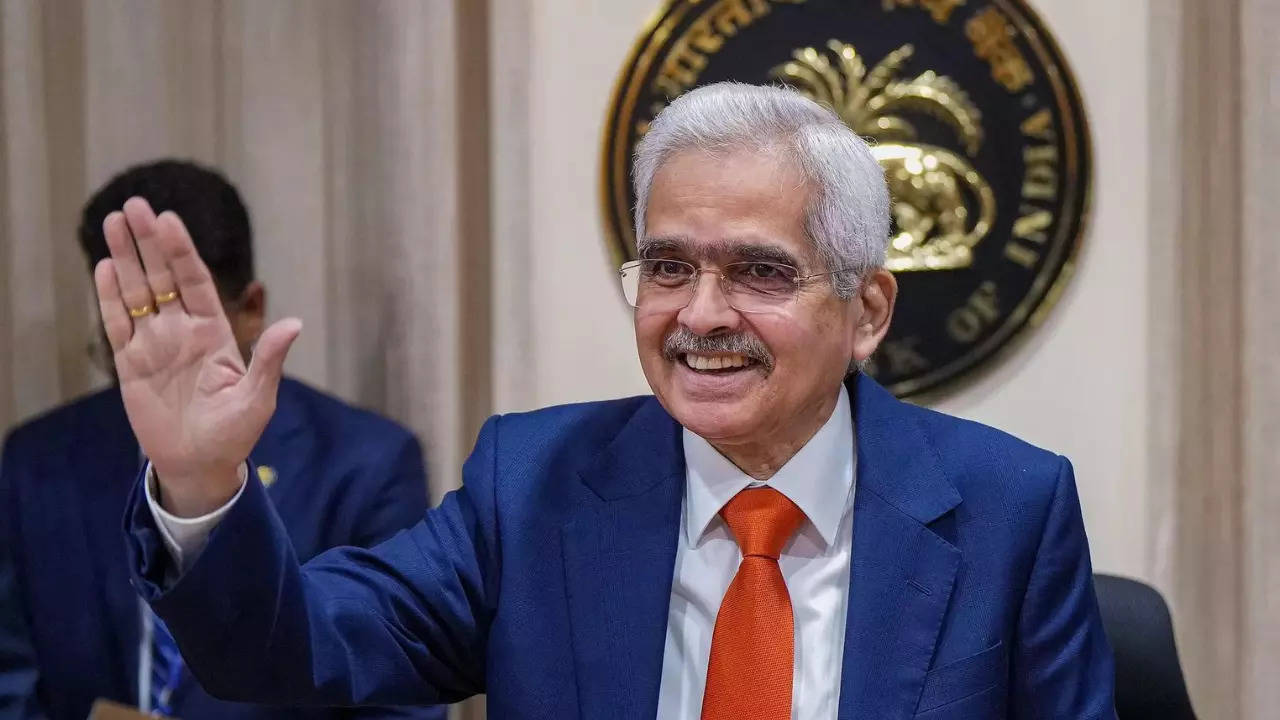[ad_1]
MUMBAI: RBI governor Shaktikanta Das has recommended to other countries the Indian strategy of coordination between the central bank and govt to address the demand and supply side of inflation. Das proposed such a coordinated effort, citing the high risk of sovereign indebtedness in some countries and how raising interest alone to curb inflation could lead to financial instability.
Das said India’s successful policy response to adverse shocks can serve as a template.Monetary policy anchored inflation expectations, while govt supply-side interventions eased pressures and moderated cost-push inflation. “India’s coordinated policy response in the face of a series of adverse shocks can be a good template for the future,” said Das.
Das was speaking at the 59th SEACEN (South East Asian Central Banks) Governors’ Conference in Mumbai. “India has successfully navigated multiple challenges and emerged as the fastest-growing large economy,” he said. He said the economy is set to grow for the fourth successive year at or above 7%.
“Recurring food price shocks and renewed flash points on the geo-political front, however, pose challenges to the ongoing disinflation process,” said Das. He said RBI remained vigilant in navigating through the last mile of disinflation as it is often the most difficult part of the journey.
Das said that before the pandemic, monetary policy aimed to revive growth while resisting deflationary pressures. However, a sudden shift occurred: “higher for longer” interest rates were adopted by central banks to combat inflationary pressures after the war in Ukraine. This shift and existing debt burdens raise concerns about macroeconomic stability.
Das said India’s successful policy response to adverse shocks can serve as a template.Monetary policy anchored inflation expectations, while govt supply-side interventions eased pressures and moderated cost-push inflation. “India’s coordinated policy response in the face of a series of adverse shocks can be a good template for the future,” said Das.
Das was speaking at the 59th SEACEN (South East Asian Central Banks) Governors’ Conference in Mumbai. “India has successfully navigated multiple challenges and emerged as the fastest-growing large economy,” he said. He said the economy is set to grow for the fourth successive year at or above 7%.
“Recurring food price shocks and renewed flash points on the geo-political front, however, pose challenges to the ongoing disinflation process,” said Das. He said RBI remained vigilant in navigating through the last mile of disinflation as it is often the most difficult part of the journey.
Das said that before the pandemic, monetary policy aimed to revive growth while resisting deflationary pressures. However, a sudden shift occurred: “higher for longer” interest rates were adopted by central banks to combat inflationary pressures after the war in Ukraine. This shift and existing debt burdens raise concerns about macroeconomic stability.
[ad_2]
Source link


